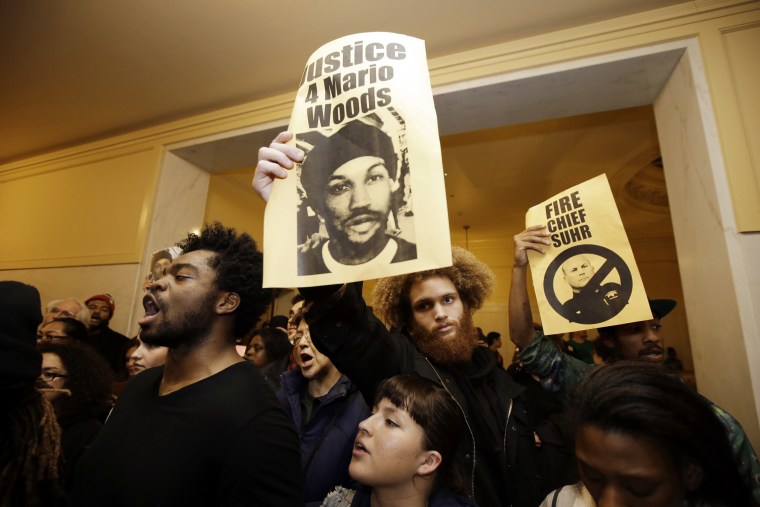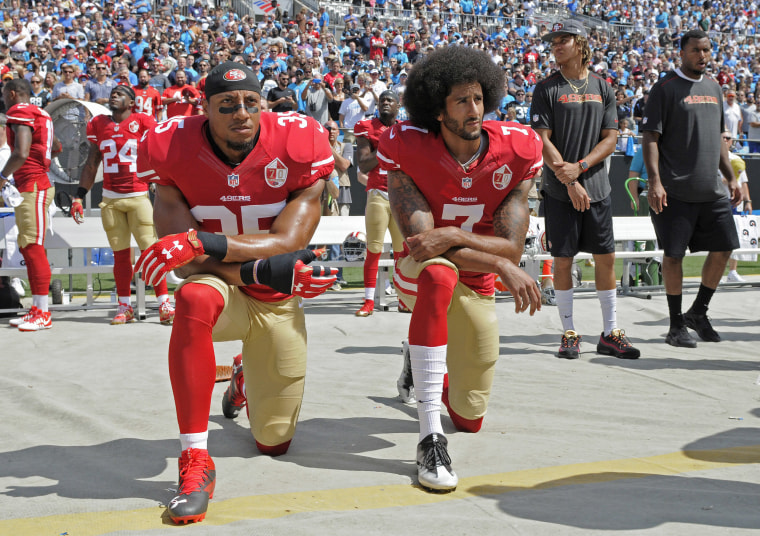Free-agent quarterback Colin Kaepernick, about to enter a third consecutive autumn of NFL unemployment, revealed that a specific police shooting led to his activism.
In an interview with online magazine Paper, Kaepernick said his protests were a response to a deadly December 2015 confrontation between San Francisco police officers and Mario Woods, 26, in the city's Bayview neighborhood.
Woods, a suspect in a stabbing attack, died after being shot 20 times after he allegedly refused police orders to drop his knife. Woods' family sued the city in a lawsuit that was settled for $400,000.
Kaepernick, who at the time played for the San Francisco 49ers, said that after the shooting he and his longtime girlfriend, Nessa Diab, devised a plan that included the launching of a Know Your Rights Camp for youth.
"The discussion happened shortly after the execution of Mario Woods," Kaepernick told Paper in a story posted Tuesday morning.
Kaepernick's kneeling during the national anthem at games during the 2016 season prompted some other NFL players to follow suit and set off a heated national debate over the appropriateness of such demonstrations during the anthem.
The quarterback has previously offered a more general explanation that his silent protests were against racism and police brutality.

In the 50 years since the struggles of the Black Panther movement, "what has changed?" Kaepernick told Paper.
"Oscar Grant, Rekia Boyd, Michael Brown, Tamir Rice," he said, ticking off names of people killed by police in recent years. "Laquan McDonald, Sandra Bland, Freddie Gray. The Panthers' demands are still alive today because the police are still killing us today."
Kaepernick became a free agent in March 2017 and hasn't played pro football since. He sued the NFL for allegedly colluding to keep him out of the league, a claim settled out of court earlier this year.
The NFL last week announced that it is teaming up with Jay-Z to address issues brought to light by social activists.
The announcement drew some criticism, including from Diab, who accused Jay-Z of helping an organization that had blackballed Kaepernick.
“I don’t mind you doing a business deal — but I do mind you wrapping it in social justice when you’re working with an organization that denies someone an opportunity," she said on Hot 97 radio station last week.
Jay-Z said at the news conference announcing the initiative, “We forget that Colin’s whole thing was to bring attention to social injustice.”
"This is the next thing," he said, "because there are two parts to the protest — you go out and protest, and the company and individual says: ‘I hear you. What do we do next?’”

